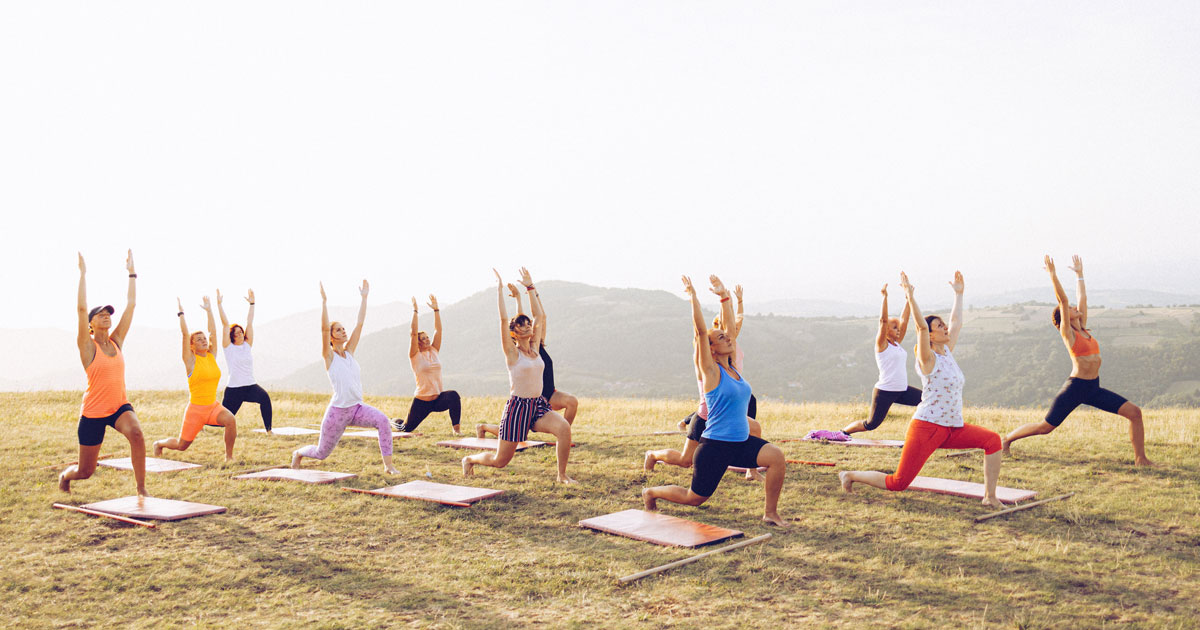Overcoming addiction is a difficult process that requires the right tools to properly treat the underlying disease—substance use disorder (SUD). There are numerous coping mechanisms meant to help deal with impulses. Often, these coping mechanisms are most helpful when confronting cravings or other situations when people are tempted to return to using alcohol or drugs to relieve themselves of anxiety and other symptoms.
At Recovery Cove, we provide clients with unique skills like yoga and other mindfulness practices to use as a coping mechanism. Yoga and meditation in recovery can help prevent future relapses, regain control, and help you to find an improved and happier life. Rehabilitation for substance use disorder isn't simply about helping you get sober—instead, it should be a continuous resource where you can develop new, healthy strategies to use in the future. That's why we teach meditation, yoga, and other mindfulness practices to help you recover and find a better life.
Yoga And Mindfulness Help with Addiction Recovery
In order to understand yoga and addiction treatment, it is first important to understand the neurological effects of the condition. One of the most difficult factors that clients recovering from SUD face is emotional or situational triggers that induce cravings, such as stress, physical discomfort, returning to a situation in which you once used substances, and mental health disorders that have both mind and body seeking a familiar escape.
Fighting a craving can be near impossible without the proper tools, so it is important to find coping mechanisms to provide the relief you seek. Coping mechanisms can help you tolerate the sensations caused by the trigger, address them directly, and minimize their importance. Then, you can begin feeling better without substance use.
Mindfulness, meditation, and yoga for recovery help teach you how to balance your emotional, mental, and physical energy on your own healing processes. This is known as whole-person recovery. You can use meditative tools like yoga and mindfulness to achieve sobriety by finding natural ways to control your mood and physical reactions to stressful, depressive, or other triggering emotions.
Yoga can also help you mitigate levels of cortisol, adrenaline, and other stress hormones that can cause a relapse. With hormones under better control, you are less likely to feel the effects of the emotions these hormones can cause, meaning a reduced chance of emotions such as anxiety or depression. Yoga can also provide a useful release for physical discomfort experienced during withdrawal and give you a healthy release that helps you to overcome withdrawal symptoms in a natural and healthy way.
Meditation and mindfulness also work toward helping you control your own emotions and find supportive communities and meaning outside of SUD. While relapses can often occur when you lack proper connection to yourself or those you care about, meditation provides you with an important neurological and spiritual connection.
Benefits of Practicing Yoga and Mindfulness
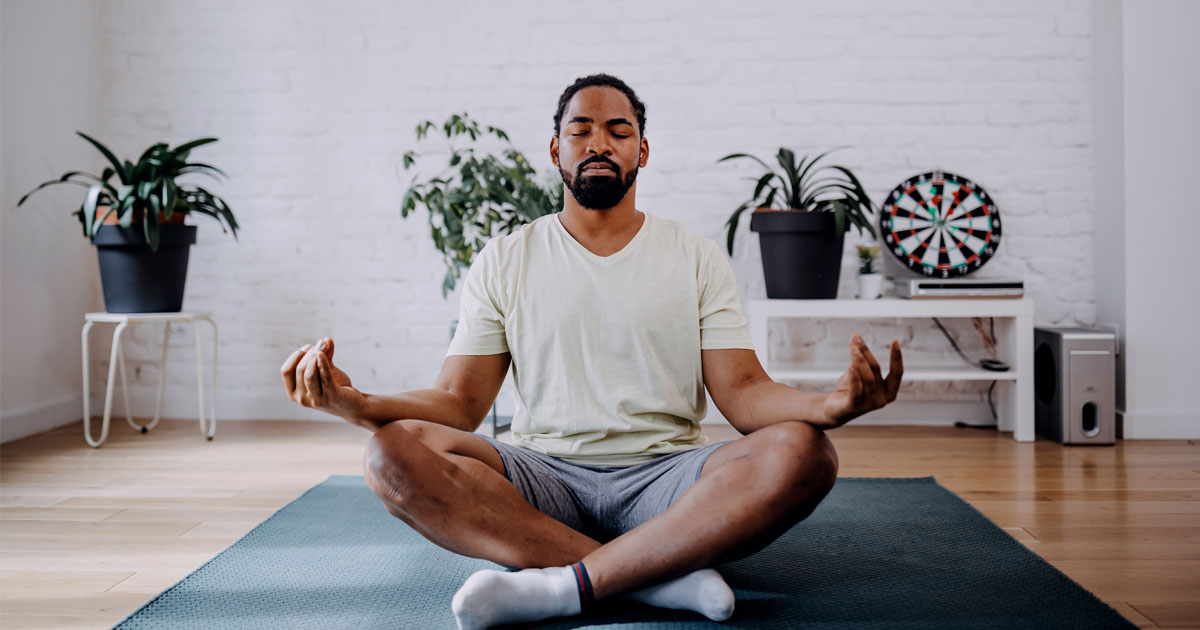
Yoga’s origin comes from the Sanskrit term “Yuj,” which literally translates to mean “to unite.” As this definition suggests, yoga’s primary goal is to utilize physical meditation, stretching, and exercise to unite your physical wellness with your mental wellness. With yoga, you’ll use both to overcome obstacles you may face in your mind. With physical postures, breathwork, and other tactics, yoga can provide a number of benefits, especially for those overcoming SUD.
Improved Focus
Yoga is known for improving the ability to focus in more resilient ways. The distractions from your daily recovery path that can cause relapses are easier to fight off if you are practicing a daily yoga regimen. Similarly, an elevated focus on the here and now can shift your thoughts from the emotions and sensations causing your cravings. By being able to meditate through stress and anxiety rather than be consumed by it, you can replace the desire to return to substance use with a healthier skill.
Improved Energy Levels
Any physical exercise can serve to increase your energy levels, but yoga is the gold standard for exercise in recovery. Yoga can provide physical exercise without overstimulating the body or the mind. This often helps combat mental health issues such as depression and anxiety and is accessible to people of all fitness levels.
Increased Self-Awareness
The meditative aspects of yoga provide you with increased self-awareness as well as emotional healing. This increased self-awareness can help you develop a better sense of who you want to be and learn how far you’ve come in dealing with SUD, making relapse less likely. The improved emotional healing can also benefit you by helping you resolve the trauma both caused by and underlying your SUD.
Better Mood Regulation
Mindfulness offers additional benefits. Being able to meditate and become aware of the thoughts, impulses, and needs in your head will help you to regulate your mood. In this sense, you are less likely to experience depression and anxiety because you can practice proper management of stress and emotions.
Improved Body and Brain Function
Mindfulness is clinically associated with improved immune function. Individuals who practice mindfulness also demonstrate improved cognitive flexibility. These can greatly assist in the development of neuroplasticity as a means of overcoming SUD.
Best Yoga and Mindfulness Practices for Addiction Recovery
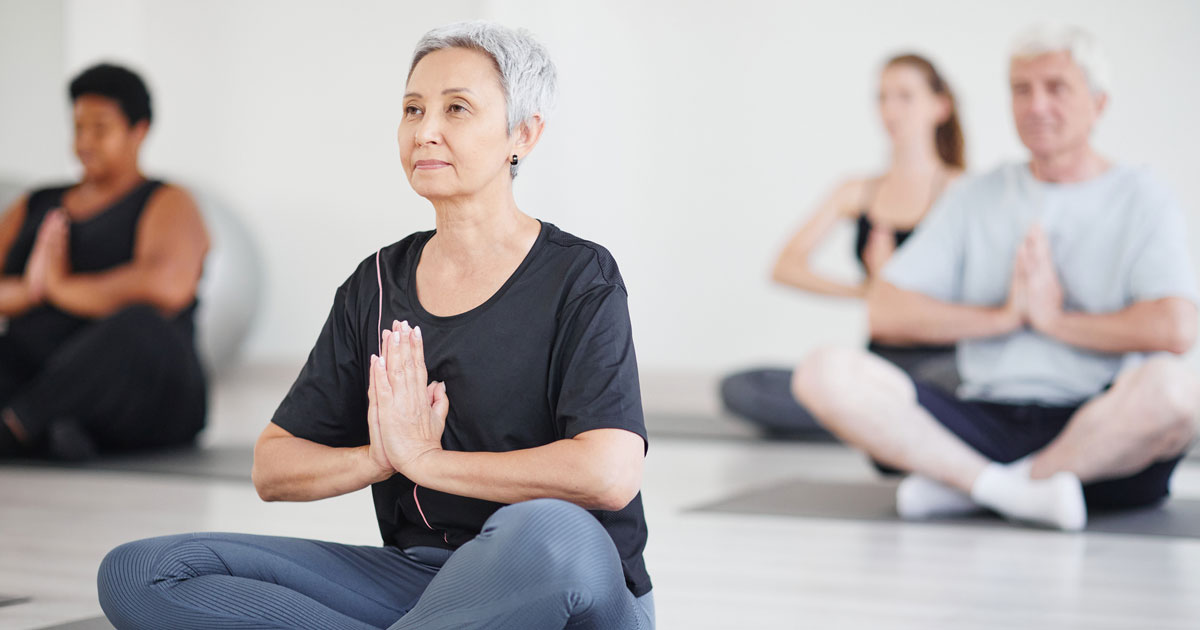
Of course, practices as ancient as yoga and mindfulness can be undertaken in countless ways. Here are the best yoga and mindfulness practices to use in recovery.
Practice Yoga
There are a number of unique yoga practices, including hot yoga, power yoga, and Kundalini yoga, to name a few. While many of these can supply the benefits listed above, you might consider starting with restorative yoga to help you address the effects of SUD. Restorative yoga focuses on slow, deliberate movements and supported poses to allow you to relax your muscles and mind. Hatha yoga is also considered a relatively gentle form of yoga that enables you to quiet the mind and relax.
Breathing Exercises
Stress and anxiety can often lead to emotional spiraling, which can cause relapse as a means to deal with the stress at hand. By focusing on mindful breathing during tense or stressful moments, you can regain control over anxiety. Breathing exercises can be practiced nearly anywhere by taking a slow, steady inhale through your nostrils and then letting out a calm, steady exhale through your mouth. This will create a repetitive sensation of air entering and leaving your body and will work to calm your body and mind naturally.
Practice Being Still
This practice is deceptively simple. A core practice of meditation and yoga is self-reflection and contemplation by being physically, mentally, and emotionally still. You can practice being still by sitting in a meditative position and focusing inwardly. By exercising with yoga poses or practicing calming activities like gardening or woodworking, you can train your mind not to wander or follow stray, harmful thoughts. The best thing about practicing being still is you can determine whether traditional meditation, yoga exercise, or another hobby works best for you and then let your thoughts become still.
Exist in the Moment
Where practicing being still can help drive away intrusive thoughts, practicing being in the moment can help you to build a sense of mindfulness that grounds you in the present in positive and healing ways. Typically, this practice involves attuning yourself to sensory experiences such as enjoying the stretching sensation during a yoga pose, enjoying the sounds of nature, or even taking in the smell of your favorite soap while washing your hands. Practicing being in the moment can help you find comfort in even the most stressful real-world moments and help you reestablish your place in reality.
Practice Processing Your Thoughts
One of the most important steps in practicing mindfulness is developing the ability to navigate your thoughts and let intrusive thoughts go. Many people facing SUD have thoughts of self-loathing or even paranoia that can increase the desire to engage with an addictive substance. By keeping tabs on the thoughts you are having throughout the day, you can better process what thoughts you’re having that are triggering anxiety, depression, or behaviors contributing to your SUD. Once you have identified these thoughts, you can more easily let them go.
Best Yoga and Mindfulness Resources
There are countless resources for yoga and meditation that are available to newcomers to meditation and seasoned yoga veterans alike. For newcomers to yoga and mindfulness practices, one of the best ways to get involved is to look for beginner classes that teach meditation and yoga techniques.
You can start simply by looking up online tutorials to practice yoga at home or even find a local yoga class. Both offer their own advantages. Online resources are typically an accessible, cost-effective way to begin your yoga journey. Local, in-person classes are more interactive and build a sense of community and connection with others.
The right meditative app can also be a helpful resource for beginners, providing resources like meditative music, breathing and calming exercises, and other walkthroughs for individuals who are new to meditation. There are also countless books that provide instructions, teachings, and additional resources to assist you on your mindfulness journey.
Recovery Cove provides addiction recovery resources as well as training in yoga and mindfulness resources. These practices can help clients develop the set of coping mechanisms they need while they are recovering and long after they’ve returned to their lives.
Yoga and Mindfulness FAQs
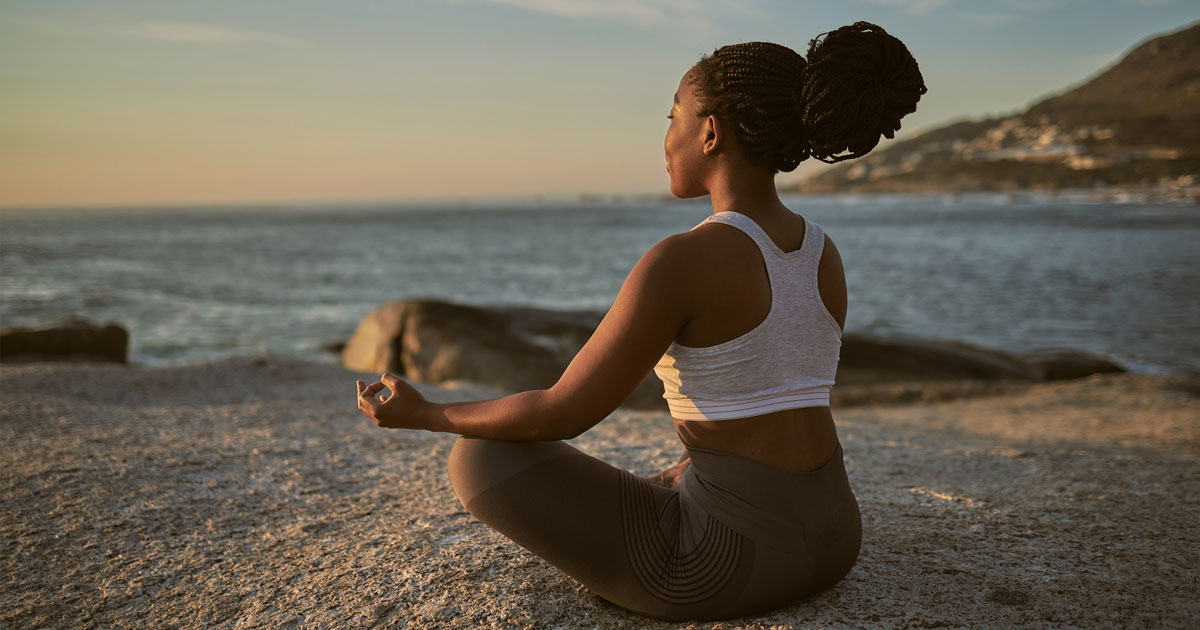
Yoga and mindfulness are important parts of treatment here at Recovery Cove. Learn more about these practices.
Recovery Cove Uses Yoga for Mindfulness
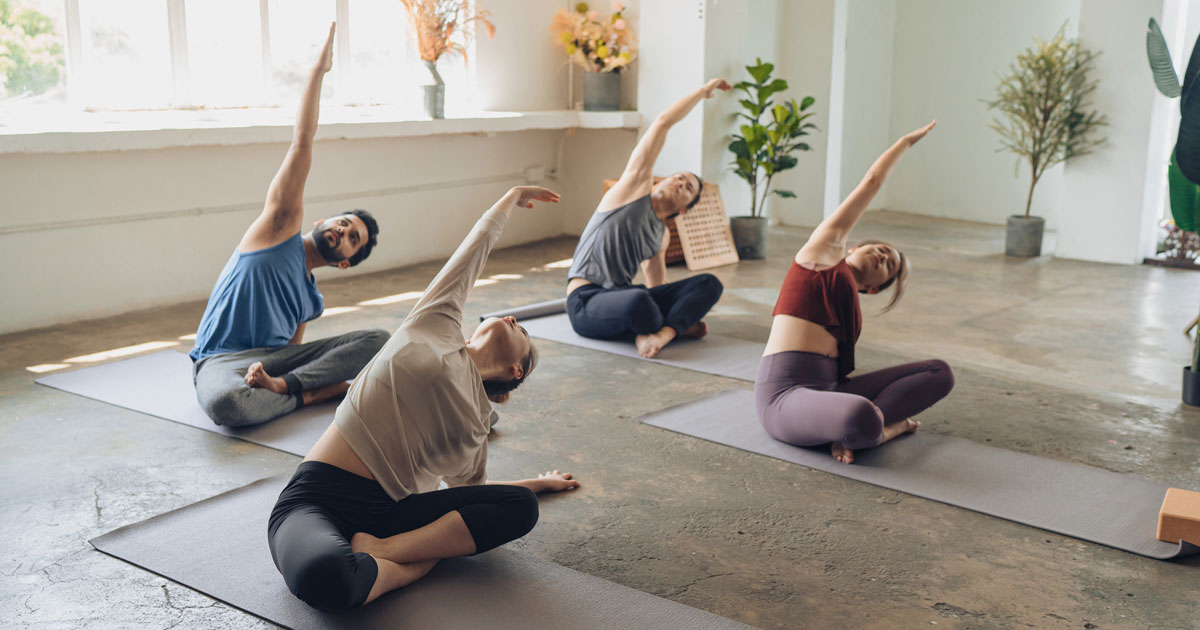
It’s important to have the proper tools like yoga and meditation to assist with handling stress and anxiety, especially as you are tackling issues related to substance use disorder. To maximize these tools to assist in the daily management of your SUD, it is important to develop those skills in tandem with an SUD recovery program. That’s why Recovery Cove works with you to focus on addressing your immediate needs to overcome withdrawals and cravings, as well as focusing on you as a whole person.
Recovery Cove is here to help you create the recovery plan that best suits your needs, help you treat the underlying circumstances behind your struggle, and to help you build the toolbox you need to tackle whatever life throws your way once you are back home. For more information about our offerings, browse our SUD outpatient treatment programs.
Sources:

Clinical Director
Christine Todd is a Licensed Professional Counselor and an Advanced Certified Drug and Alcohol Counselor who enjoys working directly with a population that struggles with addiction and mental health disorders. Christine brings many years of clinical experience to the team at Recovery Cove, where she is currently the Clinical Director. In her role, she oversees the clinical department as a leader, educator and mentor, designing programming and protocols for a diverse client population.
